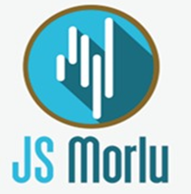By Bernard BEMPONG
To start with, a cloud accounting platform is the use of internet-based software application to manage data, processes and financial transactions remotely.
Financial data is stored and accessed safely on remote servers rather than a company’s local computers or servers.
The technology enables a business to efficiently manage their accounting needs without the need for a physical software installation or maintenance.
A cloud accounting platform performs functions like invoicing, expenses tracking, financial reporting and payroll management, which are accessible from any device with an internet connection. Cloud accounting empowers an organization to make a strategic decision with ease and efficiency.
Cloud Accounting Software Market
Cloud accounting software provides financial management functionalities through cloud-based platforms, accessible online via web browsers or mobile applications.
The main types include browser-based applications, application Service Providers (ASPs) and Software as a Service (SaaS).
This software caters for various enterprise sizes, including small, medium, and large enterprises, and serves diverse industries such as Information Technology, Banking and Financial Services, Insurance, Telecommunications, Healthcare, Government and Public Sector.
Based on the deployment model, the cloud-based segment of the financial automation market is expected to hold over $ 12.8 billion by 2032.
Increasing Adoption of Cloud Accounting
Generally, businesses are switching to a cloud accounting software for its automatic updates and real-time data access and cost-effectiveness.
Major companies operating in cloud accounting software are focusing on innovating new software solutions such as accounting and audit services, to manage core accounting tasks.
This software solution is designed to help accounting firms streamline their operations efficiently by providing a comprehensive platform.
The software acts as a one-stop solution for simplifying a cloud accounting and auditing firm’s activities and allowing internal and internal communication with clients for several business requirements. Other reasons for the increasing trend in cloud accounting software application include:
Rise of Artificial Intelligence (AI)
Artificial Intelligence (AI) automates tasks, analyzes financial data, and predicts future trends. Emerging applications include fraud detection, natural language processing, and AI-powered virtual assistants.
Growing Demand for Real-Time Financial Data
Real-time financial data enables informed decision-making. Cloud accounting software provides instant transaction recording, real-time reporting, and up-to-the-minute financial insights.
Need for Robust Security Measures
Security is paramount in cloud accounting. Providers implement advanced encryption, multi-factor authentication and regular security updates to protect sensitive financial data.
Data Compliance
Cloud accounting software deploys advanced encryption, regular security updates, and robust access controls to prevent data breaches and cyber threats.
Indeed, cloud solutions often include built-in compliance features such as GDPR (General Data Protection Regulation) and PCI-DSS (Payment Card Industry Data Security Standard) to help organizations to adhere to regulatory standards.
That said, cloud computing service developers launch innovations and new features to improve cloud-based systems.
Sustainable Tax Practices
E-filing and digital signatures streamline tax processes, reduce errors, and promote environmentally responsible practices. Digital signatures ensure security and authenticity and reduce the risk of common filing errors.
Automatic Upgrade & the Drive for Cloud Accounting Software
The provider updates cloud accounting software regularly, ensuring that businesses always have access to the most recent features and comply with current tax laws and financial rules at no additional cost or effort.
This drives the growth of the cloud accounting technology market. In addition, cloud accounting solutions frequently provide seamless connectivity with a wide range of other corporate applications, including payroll, CRM, and e-commerce systems.
This integration feature allows for a more simplified, automated workflow, minimizing manual data entry and the possibility of errors while also offering a more comprehensive view of the business’s financial health.
The capacity to access financial data and accounting tools from any location, at any time, using any internet-enabled device, is one of the main benefits of cloud accounting.
This flexibility facilitates remote work, improves team collaboration, and allows for real-time decision-making based on the most up-to-date data.
Seamless collaboration is driven by storing all financial data online in a single database or integrating with other applications to automate workflows. It is especially useful in today’s global and sometimes remote corporate world when team members must collaborate across multiple locations and time zones.
Documentation/Storage
Accounting is a document-driven profession. For instance, invoices, receipts, bank statements and other documents are a large part of any accounting activity and require some amount of storage space.
Cloud-based accounting solution or software makes it easier to store documents in the cloud with automatic backups. That makes them easily accessible and makes document sharing easier with other users. It also eliminates filing cabinets and storage units in so doing saves physical office.
SMEs & the Demand for Cloud Accounting
Indeed, cloud accounting software is a transformational tool and has become a major catalyst for SMEs to improve accuracy financial reports. Considering that small to medium-sized enterprises (SMEs) face challenges due to limited IT budgets, the platforms tend to provide a relief.
Thus, cloud accounting solutions offer an attractive alternative, requiring lower initial investments compared to traditional on-premises software. The subscription-based pricing model provides SMEs with access to high-quality accounting software for predictable monthly or annual fees.
Key Benefits for SMEs
- Cost-Effectiveness: Cloud accounting solutions offer a cost structure that allows SMEs to manage expenses while benefiting from advanced accounting capabilities. Markets & Markets’ statistical data confirms that financial cloud computing allows financial institutions to reduce capital expenditures by eliminating the need for extensive on-premises infrastructure. A business can pay for services on a pay-as-you-go model basis and cost-effectively scale computing capacity. This payment model significantly reduces any upfront costs.
- Scalability and Flexibility: Cloud accounting solutions scale with SMEs as they grow, providing the flexibility to quickly adjust resources without incurring substantial additional expenses or technical issues. Indeed, the cloud provides on-demand scalability and allow a business to manage fluctuations in customer demand and transaction volumes effectively.
- Ease of Use and Accessibility: Cloud accounting software is designed to be user-friendly, requiring minimal setup and maintenance. It also provides access from anywhere with an internet connection, at any time, which is critical for SMEs with remote teams or non-traditional work arrangements.
- Customer Data Security: Cloud accounting software providers invest heavily in security measures to protect their customers’ data. This is especially important in today’s increasingly digital world.
- Compliance: Cloud accounting software providers can help businesses to comply with a variety of data regulations such as the General Data Protection Regulation (GDPR).
Challenges Hindering Cloud Accounting Adoptions
The growth of cloud accounting technology is hindered by several challenges. One major obstacle is the requirement of reliable internet access, which can be a significant limitation in areas with inadequate internet infrastructure.
Disrupted connectivity can impede business operations and decision-making processes, making it difficult for companies to access their financial data. Data security and privacy concerns are another significant challenge facing cloud accounting.
Financial data is highly sensitive, and many firms are reluctant to store it on remote servers accessible via the internet.
This reluctance creates a barrier to market expansion, highlighting the need for cloud accounting providers to prioritize robust security measures and reassure clients about the safety of their financial data.
Conclusion
The future of cloud accounting is promising, driven by AI-driven automation and scalable cloud-based software. Real-time financial data and robust security are now essential, as is compliance with data regulations.
Businesses that adopt these trends will gain a competitive edge by leveraging AI for data-driven decisions, cloud solutions for efficiency.
To thrive in this evolving landscape, integrating a financial management system with a cloud accounting platform is crucial. SMEs can efficiently manage their finances by adopting cloud accounting solutions without requiring specialized IT professionals.
This enables them to focus on core business activities while leveraging advanced accounting capabilities.
Reference:https://www.thebusinessresearchcompany.com/report/cloud-accounting-software-global-market-report

BERNARD BEMPONG
Bernard is a Chartered Accountant with over 14 years of professional and industry experience in Financial Services Sector and Management Consultancy. He is the Managing Partner of J.S Morlu (Ghana) an international consulting firm providing Accounting, Tax, Auditing, IT Solutions and Business Advisory Services to both private businesses and government.
Our Office is located at Lagos Avenue, East Legon, Accra.
Contact: +233 302 528 977
+233 244 566 092
Website: www.jsmorlu.com.gh










